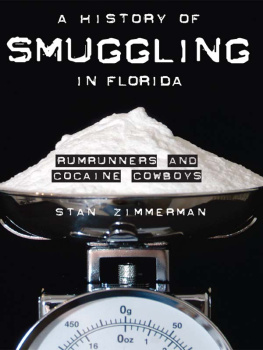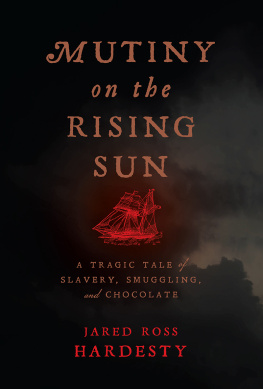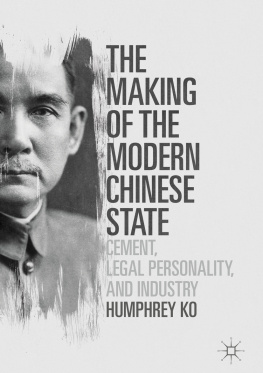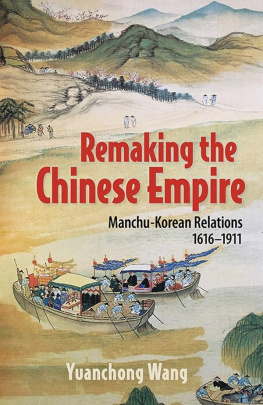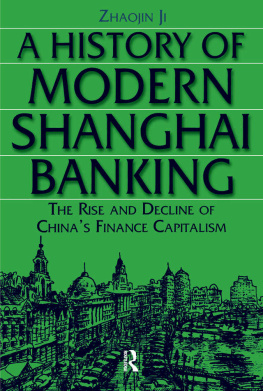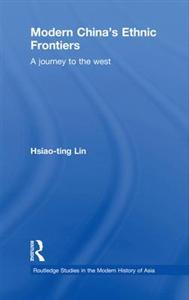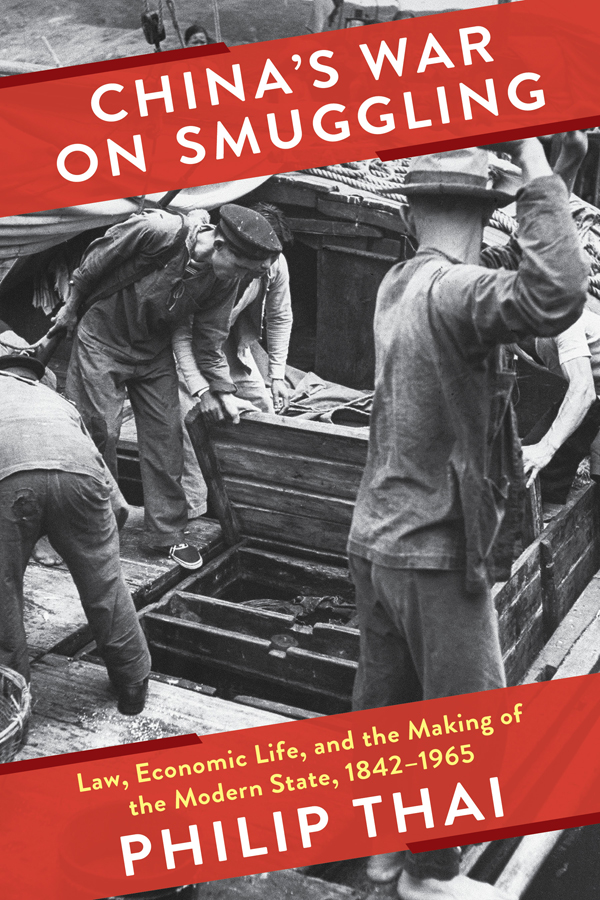Contents
Guide
Pagebreaks of the print version
CHINAS WAR ON SMUGGLING

STUDIES OF THE WEATHERHEAD
EAST ASIAN INSTITUTE
COLUMBIA UNIVERSITY
STUDIES OF THE WEATHERHEAD EAST ASIAN INSTITUTE, COLUMBIA UNIVERSITY
The Studies of the Weatherhead East Asian Institute of Columbia University were inaugurated in 1962 to bring to a wider public the results of significant new research on modern and contemporary East Asia.
For a list of titles in the series, see .
PHILIP THAI
CHINAS WAR ON SMUGGLING

Law, Economic Life, and the Making of the Modern State, 18421965
Columbia University Press / New York

Columbia University Press
Publishers Since 1893
New York Chichester, West Sussex
cup.columbia.edu
Copyright 2018 Columbia University Press
All rights reserved
E-ISBN 978-0-231-54636-2
Library of Congress Cataloging-in-Publication Data
Names: Thai, Philip, author.
Title: Chinas war on smuggling : law, economic life, and the making of the modern state, 18421965 / Philip Thai.
Description: New York : Columbia University Press, [2018] | Series: Studies of the Weatherhead East Asian Institute | Includes bibliographical references and index.
Identifiers: LCCN 2017044055 | ISBN 9780231185844 (cloth : alk. paper)
Subjects: LCSH: SmugglingChinaHistory. | Customs administrationChinaHistory. | ChinaCommerceHistory.
Classification: LCC HJ7071 .T43 2018 | DDC 364.1/336095109041dc23
LC record available at https://lccn.loc.gov/2017044055
A Columbia University Press E-book.
CUP would be pleased to hear about your reading experience with this e-book at .
Cover design: Noah Arlow
Cover image: Jack Birns
For my parents, who sacrificed everything

An injudicious tax offers a great temptation to smuggling. But the penalties for smuggling must rise in proportion to the temptation. The law, contrary to all the ordinary principles of justice, first creates the temptation, and then punishes those who yield to it; and it commonly enhances the punishment too in proportion to the very circumstance which ought certainly to alleviate it, the temptation to commit the crime.
Adam Smith, The Wealth of Nations
No state is forever strong or forever weak. If those who uphold the law are strong, the state will be strong; if they are weak, the state will be weak.
Han Feizi
The more cunning craftsmen there are,
The more pernicious contrivances will be invented.
The more laws are promulgated,
The more thieves and bandits there will be.
Laozi
CONTENTS
MAPS
TABLES
FIGURES
H aving begun this book more than a decade ago, I long looked forward to the day when I can thank in writing everyone who helped me on my journey. My primary debt of gratitude is owed to mentors who shepherded my training as a professional historian. Matthew Sommer fulfilled a pledge he made long ago on what kind of adviser he would be: one who would always provide guidance to his students but ultimately let them find their own way. His unstinting support, enthusiastic encouragement, and good humor made this odyssey possible, at times even enjoyable. Long after his supervisory obligations have formally ceased, he continues to offer warm friendship and wise counsel that are valued to this day. Kren Wigen pushed me outside my intellectual comfort zones by reminding me to think beyond China. Her critical guidance has had a profound impact on my maturity as a scholar, while her advice to always consider the comparative and connective dimensions of history still animates my thinking. Wen-hsin Yeh shared important insights that I was slow to absorb but quick to appreciate. Her high standards frequently kept me on my toes and ultimately made me a better historian.
My other debt of gratitude is owed to the many teachers I had the honor of learning from. Avner Greif, Christian Henriot, Mark E. Lewis, Martin Lewis, Thomas Mullaney, Jean C. Oi, and Jun Uchida rounded out my education as a graduate student at Stanford. The late David Keightley, the late Frederic Wakeman, and Brett Sheehan sparked my original interest in Chinese history as an undergraduate student at the University of California, Berkeley. Steven Meckna and Mary Massichteachers from long, long agoinstilled a passion for history that suffuses my work to this very day.
Northeastern University and the Department of History provided a nurturing environment for a fledgling professor growingand still growinginto his role. Tom Havens personified the ideal senior mentor who proffered sage advice on everything from career, to teaching, to writing a book. Somehow, besides responding to my queries at 4:00 a.m., he found time to provide detailed feedback on my entire manuscript. Other senior colleaguesparticularly Kate Luongo, Ilham Khuri-Makdisi, Tony Penna, and Louise Walkertook me under their wing and served as models to whom I look up. Above all, I feel incredibly lucky to have joined the department and kicked off my career with a very talented cohortVictoria Cain, Gretchen Heefner, Chris Parsons, and Ben Schmidt. They made coming to the office an absolute joy, day in and day out. It is no overstatement that I successfully navigated the vicissitudes of life and work in Boston only with their warm camaraderie. The Northeastern Asian Studies Programled by Gavin Shatkin, and joined by Hua Dong, Doreen Lee, Shuishan Yu, Liza Weinstein, and Margaret Woocreated a supportive community for all Asia-related research. Finally, my studentsparticularly those who took my courses Law, Justice, and Society in Modern China and History of Capitalism in East Asiamade teaching a rewarding endeavor and helped clarify my thinking with their provocative questions.
This project was made possible with the support of numerous institutions and foundations, and I hope my book will demonstrate that their investment in meaningful scholarship was put to good use. A Henry Luce Foundation / American Council of Learned Societies (ACLS) China Studies Postdoctoral Fellowship gave me a full year to devote to writing this book. A National Central Library (Taiwan) Center for Chinese Studies (CCS) Research Grant, Northeastern University College of Social Sciences and Humanities (CSSH) Research Development Initiative Award, and Hong Liu Asian Studies Research Award and Curriculum Award funded my follow-up research trips to China, Taiwan, and Hong Kong. The Association for Asian Studies (AAS) First Book Subvention Program and the Northeastern University Richard and Arlene Offenberg History Faculty Fund provided financial support to defray some of this books production costs. Stanford University Department of History offered enough assistance to help me focus more on my burgeoning research and less on my humble finances as a graduate student. The Fulbright-Hays Program, Social Science Research Council (SSRC), the Ministry of Education (PRC), the Stanford School of Humanities and Sciences, and the UPS Foundation Endowment supported my graduate fieldwork abroad. The Freeman-Spogli Institute (FSI) and the Chiang Ching-kuo Foundation funded my final years in graduate school. The Blakemore Foundation generously supported my advanced Chinese language studies at the Inter-University Program (IUP) at Tsinghua University. The Stanford Center for East Asian Studies (CEAS) funded my intensive Japanese language studies, Cantonese language studies, and short-term research trips.


